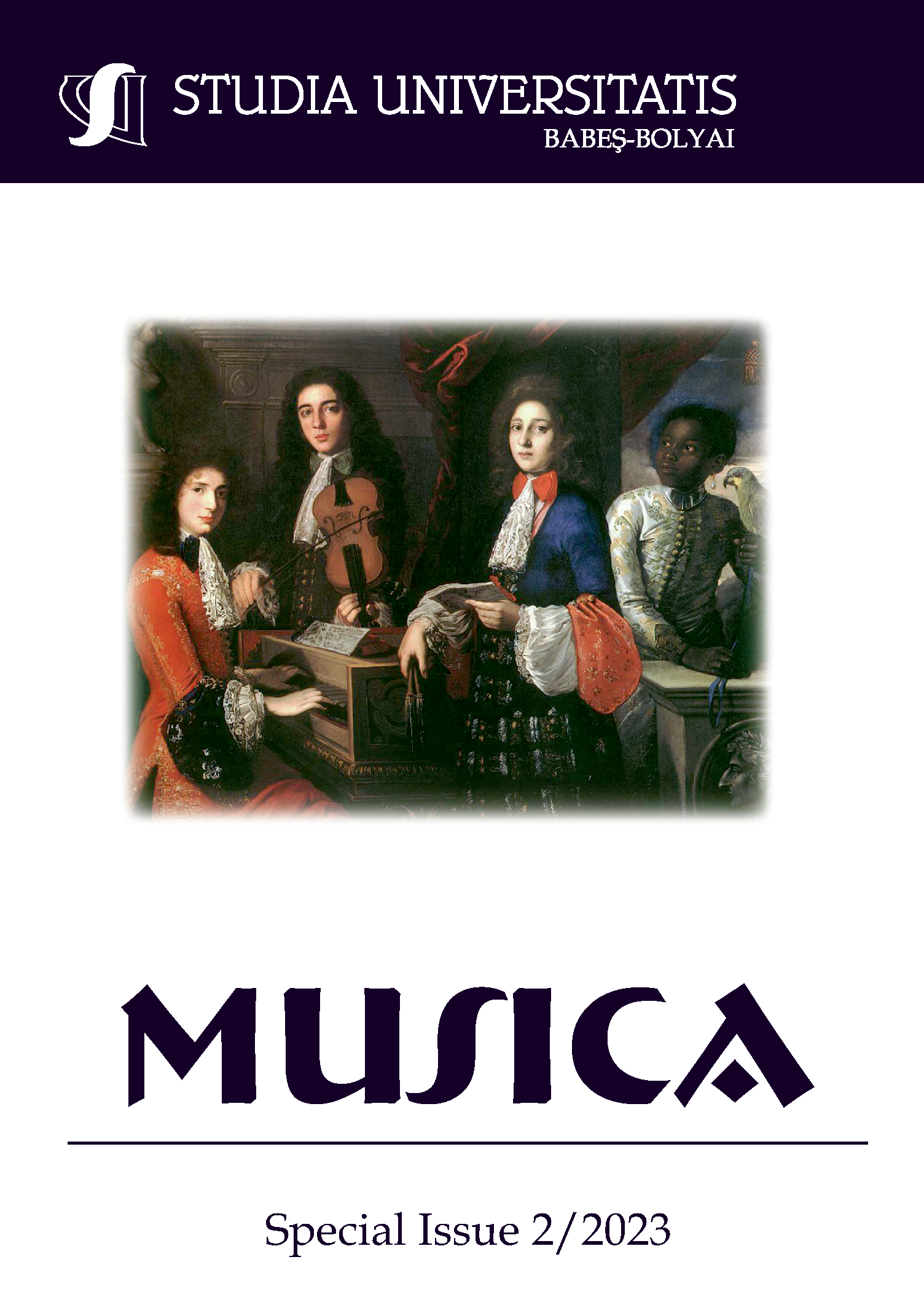THE EXOTICISM OF OLIVIER MESSIAEN
DOI:
https://doi.org/10.24193/subbmusica.2023.spiss2.03Keywords:
exoticism, Hindu, Japanese, Bali, MessiaenAbstract
In the final decades of the 19th century and in the 20th century, exoticism and orientalism contributed greatly to the evolution and innovation of Western music composition. Using the rules and techniques of Western music, composers incorporated in their works elements pertaining to or inspired by foreign cultures and their music. The current study continues the investigations brought to attention by the authors in their previous articles: it desires to reveal and analyze the way exoticism and orientalism influenced the creation of various composers, pointing to those aspects that represented innovation brought about by the contact with the music and culture of other cultures than the Western world. The musical language of Messiaen is deeply rooted in the universal musical heritage, comprising elements belonging to the music of the Ancient Greeks, the Orient, Africa, or Europe. The present paper presents and offers examples regarding the way rhythm and melody are organized and employed by Messiaen using means that are inspired by Hindu music: the correspondence between the deçî-tâlas (Hindu rhythms) and Messiaen’s use of rhythm, as well as the similarities between the Hindu rāga and the modes of limited transposition. Apart from the Hindu influences on rhythm and melody, Messiaen was also inspired by the Japanese Gagaku, its instruments, and relation between harmony and melody, as well as Indonesian music (Balinese and Javanese), both having an important influence on the way the composer perceives and creates timbre. But apart from striving to create new means of musical expression using exotic elements, Messiaen desired to unveil certain spiritual and theological truths, mirrored in his music and the construction of his musical discourse.
References
Bradbury, William C. Messiaen and Gamelan: An Analysis of Gamelan in the Turangalîla-Symphonie, D.M.A. Thesis, Cornell University, 1991.
Griffiths, Paul. Olivier Messiaen and the Music of Time. Ithaca, N.Y.: Cornell University Press, 1985.
Leeuw, Ton de. Music of the Twentieth Century: A Study of Its Elements and Structure. Amsterdam: Amsterdam University Press, 2005.
Messiaen, Olivier. The Technique of my Musical Language. Paris: Alphonse Leduc, 1944.
Messiaen, Olivier. Technique de Mon Langage Musical – Vol. II. Paris: Alphonse Leduc, 1966.
Pascu, George and Boțocan, Melania. Carte de istorie a muzicii, Iaşi, Editura Vasiliana, 2003.
Păduraru, Anca Elena. Analiză și viziune interpretativă în lucrarea Vingt Regards sur l’Enfant-Jesus de Olivier Messiaen, București, Editura Muzicală, 2020.
Samuel, Claude. Olivier Messiaen: Music and Color. Conversations with Claude Samuel. Portland, Oregon: Amadeus Press, 1994.
Downloads
Published
How to Cite
Issue
Section
License
Copyright (c) 2023 Studia Universitatis Babeș-Bolyai Musica

This work is licensed under a Creative Commons Attribution-NonCommercial-NoDerivatives 4.0 International License.



